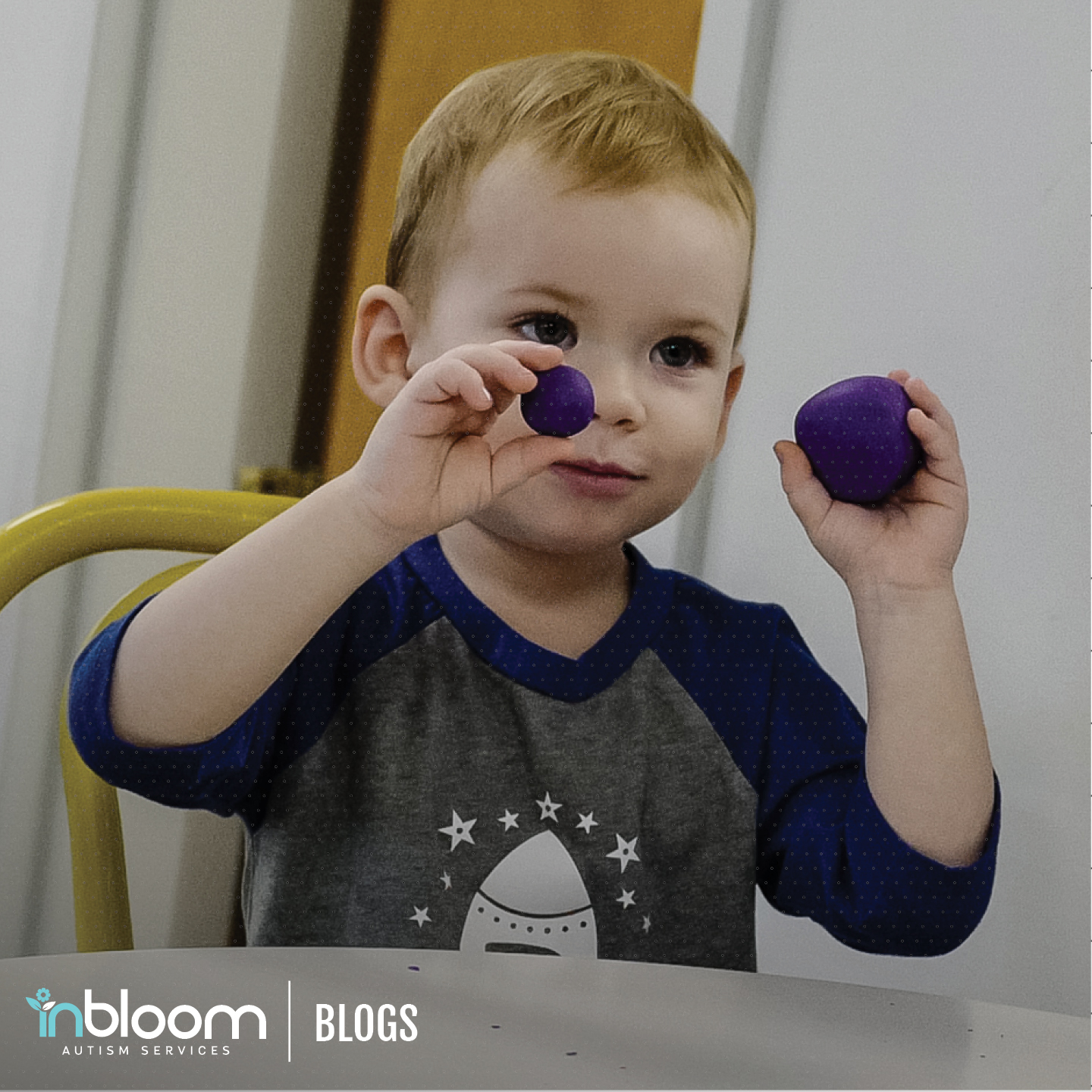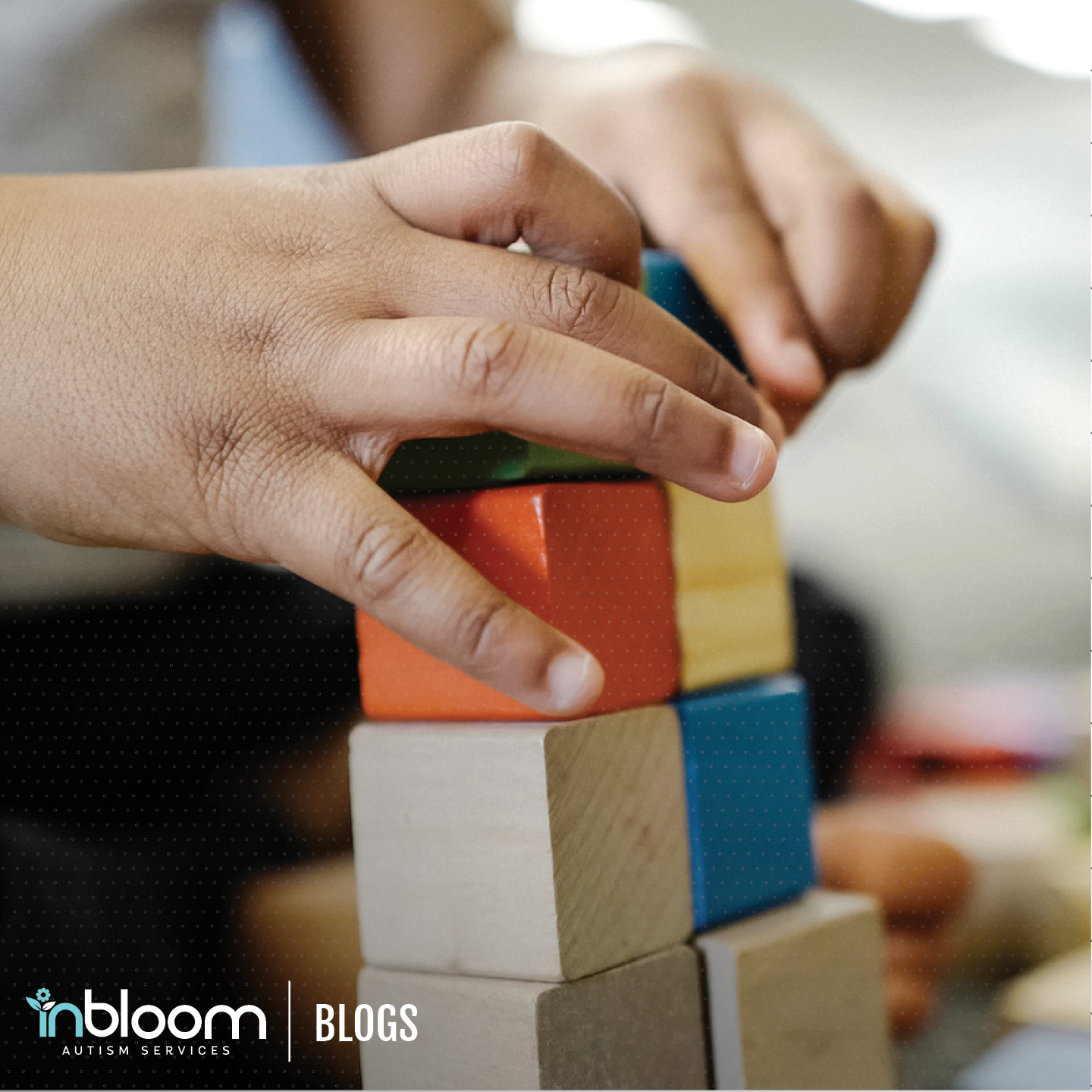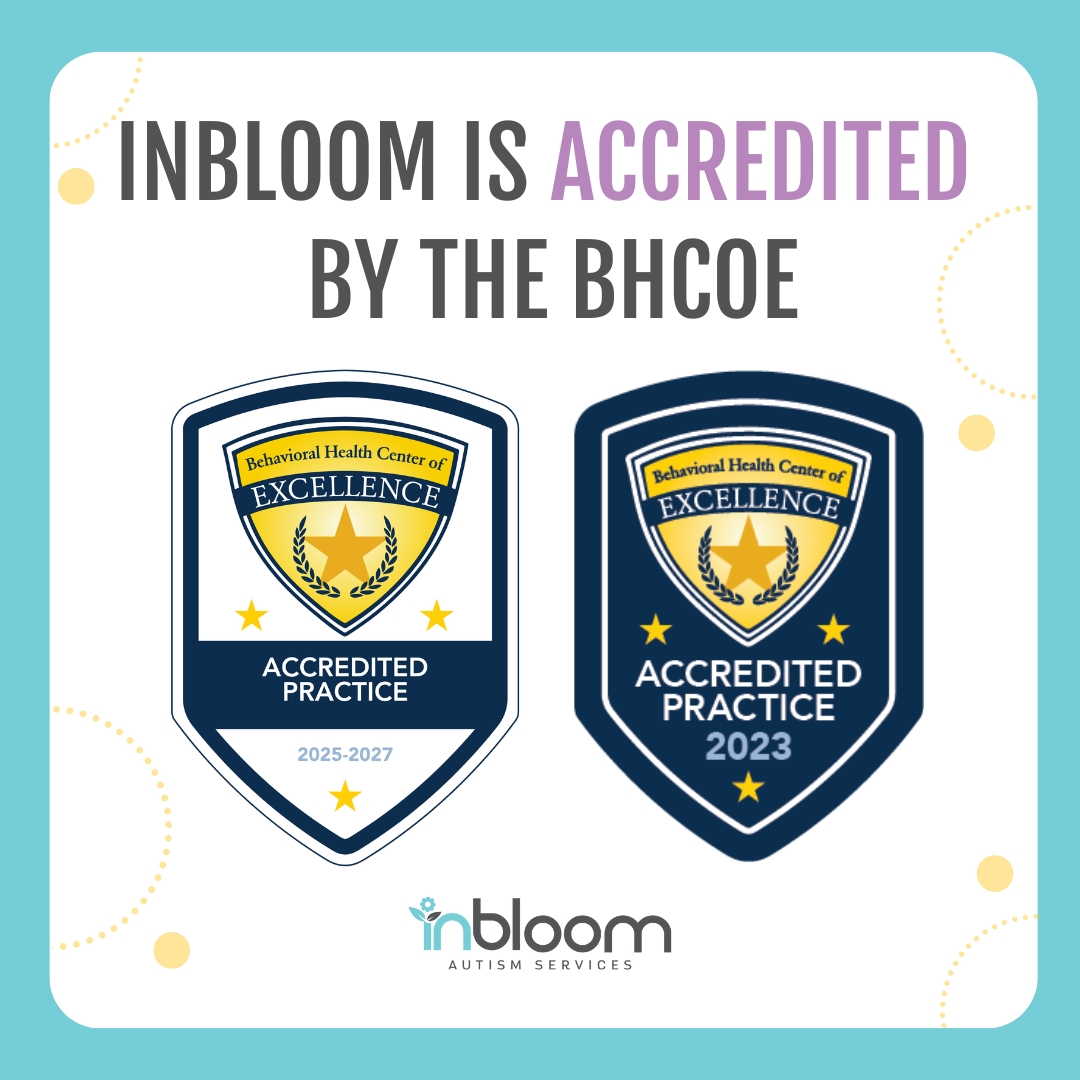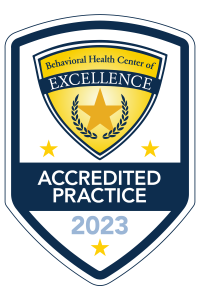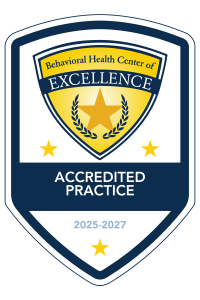Early Intensive Behavioral Intervention in ABA Therapy
There is evidence that ABA therapy for children with autism is most effective when started at a very young age. Early Intensive Behavioral Intervention (EIBI) is vital in helping your child develop the skills they need to thrive at home, in school, and beyond. At InBloom Autism Services, EIBI and ABA go hand-in-hand, providing your child with focused therapy to help them learn and grow.
EIBI and Autism Spectrum Disorder (ASD)
You may be asking, “What is Early Intensive Behavioral Intervention?” It sounds complicated, but it really isn’t. EIBI is simply providing therapy for children with autism at a very young age to give them the best possible outcomes.
At InBloom Autism Services, we specialize in Early Intensive Behavioral Intervention (EIBI) for children 18 months to 5 years old—a crucial period in their development. By age 5, a child’s brain is 90% developed, making early intervention key to helping them bloom.
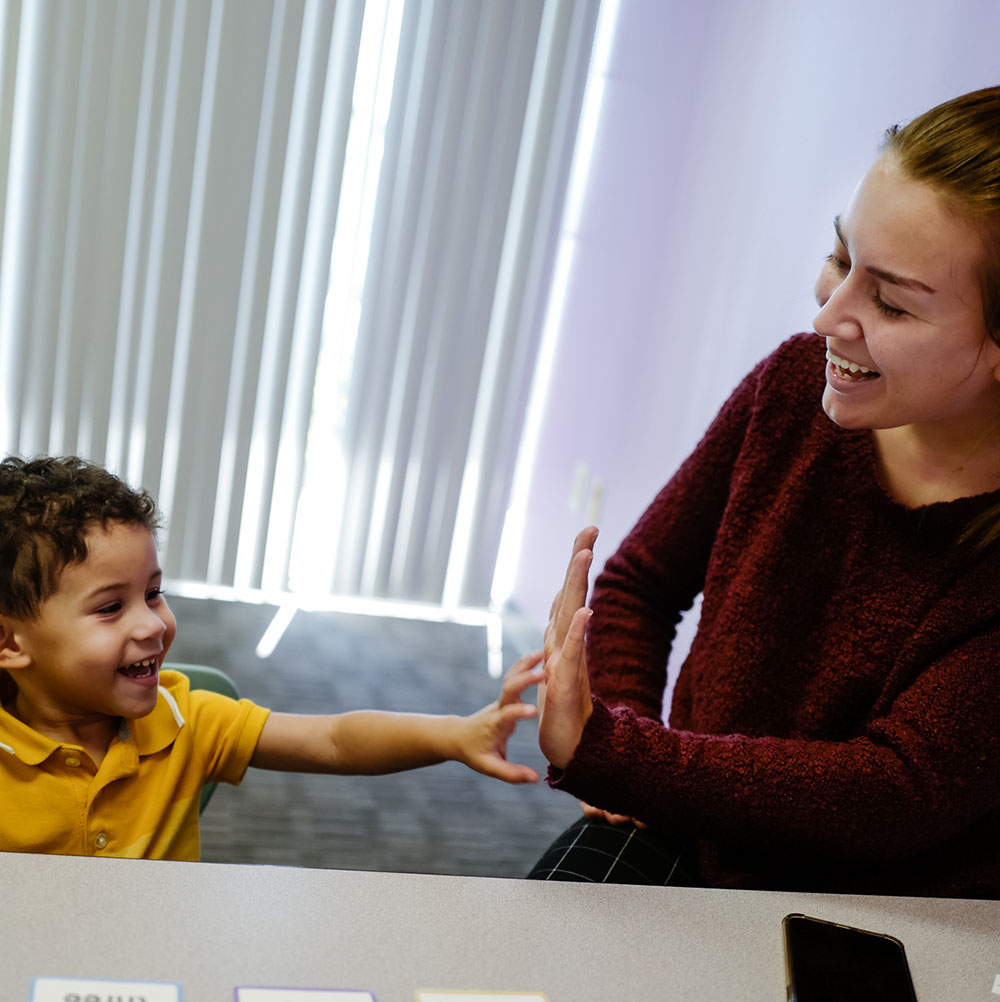
Understanding Autism Spectrum Disorder
Autism isn’t just one clearly defined condition. Instead, it exists on a spectrum. ASD is a range of conditions with certain things in common: challenges in communication, difficulties in behavior, and struggles with social skills. Each child on the autism spectrum is unique, with their very own strengths and needs.
The Role of EIBI in Addressing ASD
By using Early Intensive Behavioral Intervention for autism treatment, therapists can create a personalized plan for your child. Your child’s therapy team can work with your child to understand just where they are in terms of language, behavioral, and social skills. With this understanding, a therapy plan can be made for your child that can help them learn and expand the important skills they need.
Evidence-Based Approaches for ASD through EIBI
Early Intensive Behavioral Intervention includes certain evidence-based approaches to help children on the autism spectrum achieve success. Behavior analysis seeks to understand how a child’s behavior works in real time and encourages the development of positive, effective behavior patterns.
Positive reinforcement helps children adopt new skills and can include words of praise or rewards, such as allowing a child to play with a favorite toy they’ve asked for. Skill-building approaches like Discrete Trial Training (DTT) help children learn essential skills in a focused, sequential way.

Key Aspects of EIBI Programs
To give your child the best therapy possible, an EIBI program focuses on certain key areas: structure and intensity, skill development, and personalization. Let’s explore these.
Structure and Intensity of EIBI Programs
Effective EIBI programs, like those at each of our InBloom learning centers, are structured and have a certain level of intensity. Structure in ABA therapy is essential for good outcomes. By helping your child build new skills in an organized way, our therapists can ensure your child experiences the full benefit of therapy.
Intensity simply refers to the amount of time spent at in-center therapy. Though the number of hours per week varies depending on your child’s treatment plan and needs, between 20 and 40 hours of therapy per week is typical. This intensive focus is a good thing, as it gives your child the opportunity to learn and solidify essential life skills.
Skill Development Focus: Language, Social, and Adaptive Skills
Skill development within EIBI focuses on three key areas of development. Focusing on language skills at a young age can boost your child’s ability to express themselves. Social skills are vital to a child’s success, and ABA therapy can help your child learn and practice these. Adaptive skills are self-care or life skills that enable your children to gain independence and participate in many real-life settings.
Personalization for Individual Needs
Flexibility is a cornerstone of EIBI and ABA therapy at InBloom. Our skilled therapists thoughtfully plan tailor-made therapy to help your child reach their goals. Each child’s unique strengths and needs are taken into account as your child’s therapy team creates an experience designed for them.
Effectiveness of EIBI
There is evidence that Early Intensive Behavioral Intervention can have many significant benefits for children with autism. When EIBI is used for young children on the autism spectrum, they may have stronger communication and language skills as they grow older. Academic readiness and success can also get a boost from EIBI. Children can develop essential social and life skills that help them gain independence and participate successfully in many situations and settings.


EIBI and Child Development
Early childhood is a dynamic and crucial time in your child’s development. Early Intensive Behavioral Intervention is based on the understanding that therapy for children with autism can be particularly effective during this period of growth and development. Through focused ABA therapy before the age of 5, children have the potential to make greater gains in development, communication, and social skills.
Role of Parents and Caregivers in EIBI
At InBloom, we know that a child’s family members are at the center of their life. As parents or caregivers, you play a huge part in your child’s success, and we think of you as vital members of the therapy team.
As part of your child’s EIBI and ABA therapy, a Board Certified Behavior Analyst (BCBA) will meet with you regularly to plan your child’s therapy, discuss their goals, and get your input. Caregiver coaching is part of this process and can provide helpful tips and strategies for encouraging your child’s learning at home and beyond.


Let InBloom Autism Services Help – Get Started Today!
We recognize that everyone is at a different point in their journey with an Autism diagnosis. So, we specialize in helping you start on a path to support, guidance, and growth at an autism therapy center near you. Our InBloom Care Team is here for you and your family. We are happy to answer any questions you may have.

